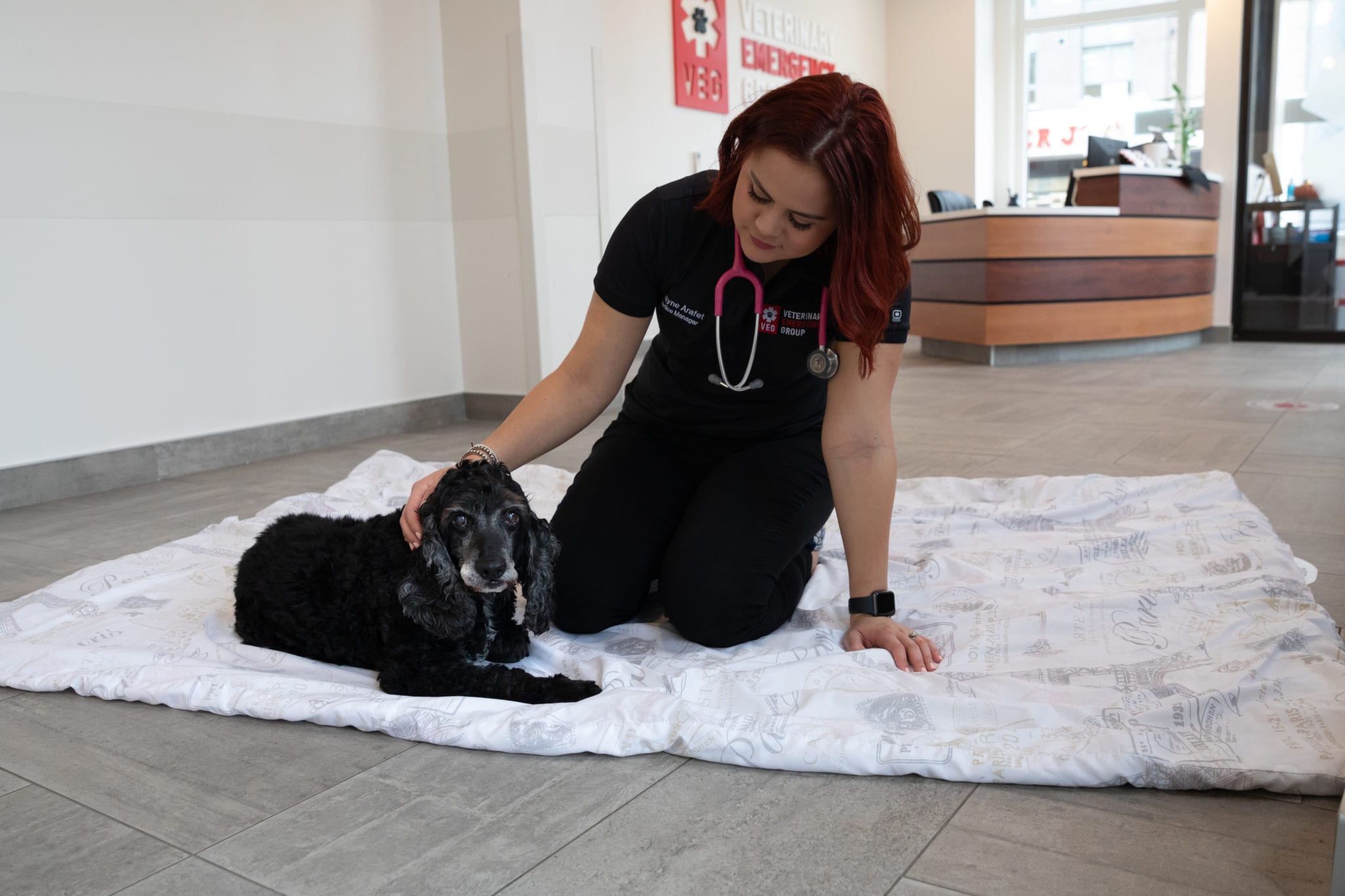
Why is My Dog Wheezing?
Dr. Bethany Weinheimer
Call & Speak with a doctor Open 24/7, Even Holidays!
Walk in today for:
Emergencies
Point-of-Care Ultrasound
Urgent Care
X-Rays
Diagnostics + Testing
End-of-Life Care
Surgery
Treatment + Hospitalization
Have you noticed your dog wheezing often lately? Has this just started recently, or is it a long-term issue? Although you should always take your dog to the vet if you notice any new, concerning symptoms, it’s also a good idea to inform yourself about the possible problems related to wheezing in your furry friend.
5 Causes of Dog Wheezing
In this article, we will explore five of the most common causes of dog wheezing. Some of these are less troubling than others, but all of them may be able to be managed or even fully treated with proper vet care.
Allergies
Allergies are the most common cause of wheezing in dogs. Many dogs who have seasonal allergies may develop wheezing as one of their symptoms during the times of year when pollen counts are at their highest. The same may be true of contact allergies or exposure to any other allergens that could make their way into your dog’s space.
Dogs with flat faces or short snouts may be more prone to wheezing from allergies than others, as well. If you have a dog with this type of face or snout, be aware that wheezing during allergy season may be a common problem for your pet.
Inhaled Blockage
In some cases, dogs may inhale a foreign object which can then become lodged in their nasal passages or windpipe. This often happens when dogs eat too quickly and inhale while eating, causing food pieces to become stuck where they shouldn’t be. However, it can also occur if your dog tries to swallow a piece of a broken toy, a stick, or any other item that he shouldn’t.
If this occurs, you will need to take your dog to the emergency vet for the blockage to be removed. Your dog may not be able to stop wheezing until he receives vet treatment for the problem.
Heartworms
Unfortunately, heartworms may also be a cause of dog wheezing. Heartworms may eventually travel from the dog’s heart to his lungs as well as other organs throughout his body. This is an advanced stage of heartworm disease, but it is still manageable with the help of regular vet care.
Dogs who have heartworms severe enough to cause wheezing will most likely never be completely healed from this disease. However, your vet can work with you to figure out the best way to manage his symptoms and help him breathe more easily as well.
Nasal Mites
Nasal mites are a less troubling problem than heartworms, but they still require vet care to treat and heal your dog. Nasal mites may cause your dog to wheeze frequently and can also cause him to scratch his face or rub his snout on the floor or furniture often. Be on the lookout for these symptoms if you think your dog may have nasal mites.
Nasal mites are not a major problem, but they can spread from dog to dog. If one of your dogs has nasal mites, it is very likely your other dogs will develop this type of infection too.
Take note that nasal mites can also cause reverse sneezing, which is different from wheezing but may seem similar to those who are inexperienced with observing this type of behavior.
Although reverse sneezing can look and sound upsetting, it isn’t anything too serious on its own. Your vet can give you more information about this symptom if it is something your dog deals with.
Heart Disease
Dogs with heart disease may develop wheezing after some time. This is not one of the first signs of heart disease, but it also isn’t one of the final ones. It generally develops partway through the progression of the disease for most dogs.
If your dog is diagnosed with heart disease, your vet will be able to help you choose what the best course of action may be for you and your pet moving forward.
Some dogs may have a collapsing trachea, which can occur with or without the presence of heart disease. If this happens, your vet can help you with treatment options as well. Although collapsing trachea may sound very dangerous, it isn’t too troubling; it simply means your dog will wheeze often if he becomes excited or overexerts himself too much.
Call VEG for Your Dog’s Wheezing
There may be other causes of dog wheezing, outside of those on this list. It is always important to have your dog checked by a professional veterinarian to determine the underlying cause of the problem.
With the help of a trusted vet, you can also choose the best course of action for treating or managing your dog’s condition moving forward. A good quality vet should be able to help you help your dog, and you may soon notice less wheezing from your pet as well.
At VEG, we understand how scary it can be when you notice your dog wheezing for the first time, or for any period of time. We have teams of highly skilled and trained emergency vets at all of our VEG locations who will help get to the bottom of what’s causing this condition in your dog and develop a treatment plan to best help them.
Whenever you call VEG, you’ll speak directly to an emergency veterinarian who will help you decide on the next step for caring for your pet.

